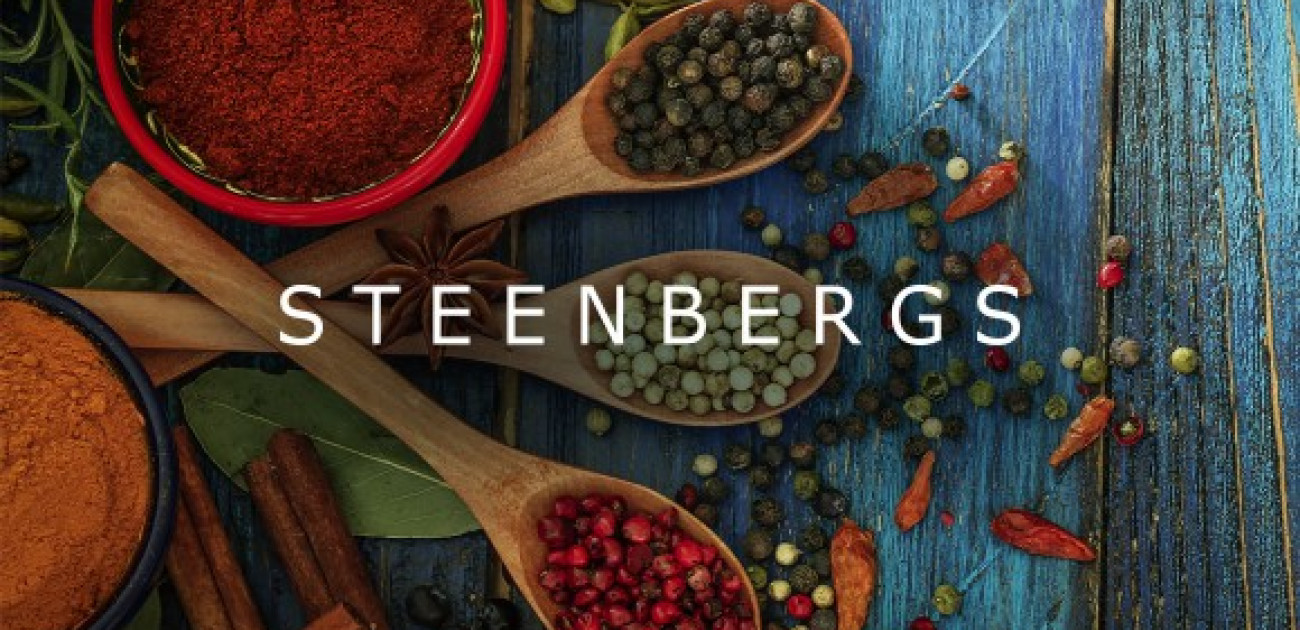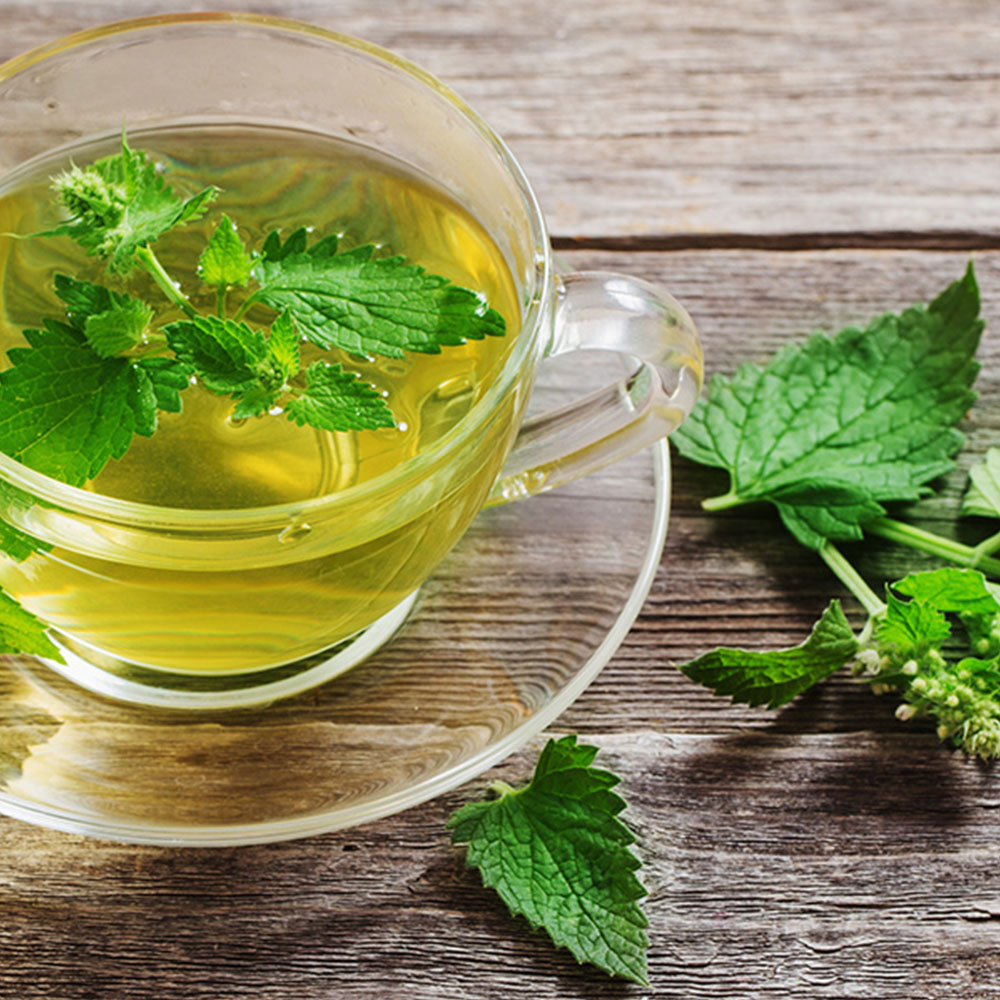01 May 2009
Thinking about organic?

At Steenbergs, we are passionate about the wonderful tastes, heady smells, glorious colours and the thrill and excitement of high quality pepper, spices and herbs. We are, also, looking for products that can be traced back to the farmers and growers.
This provenance and level of food-quality only comes through organic products. Organic food is about respect for the consumer and nature – “making” food the way consumers expect it to be made without harming, damaging or polluting our environment. But what exactly is organic and what’s so bad with non-organic foods?
What it means to farmers?
To start with, they must “convert” their non-organic land – following organic practices for 3 years before they can sell their produce as organic. This is a massive commitment in time and money.
Organic farming starts with the seeds, which must be “natural” and cannot be genetically engineered. Next, there comes the soil - organic farming looks to build healthy, living soil that can produce great food. Soil is nourished with manure and compost, rather than with synthetic fertilisers.
Pest and diseases are a major issue for farmers, reducing crop and meat yields. An organic farmer cannot use artificial pesticides or routine antibiotics. Organic farmers protect against disease through maintaining healthy soil, crop rotation, intercropping and using natural controls.
Are organic foods healthier?
With organic foods, you can be sure that artificial processing has been kept to a minimum. Organic foods tend to have higher mineral and vitamin content. No artificial chemicals are used in farming; no post-harvest chemicals are applied to plants and meat. They contain no hydrogenated fats, artificial additives, flavourings or preservatives.
So while it may be impossible to prove whether organic is healthier than non-organic there is something suspect about tampering with our food. Personally, I think that the problem is not actually whether organic is better than non-organic, but that no-one has devised an experiment or trial that could show this. It’s all a problem of: the vested interests in the chemical and biotechnology industry; how much such an experiment would cost; how long the experiment would need to take (probably at least several generations of people); and actually whether anyone is really that bothered in the outcome.
What about the environment and the farmers?
Organic producers, also, consider the environmental impact of food production and the welfare of their workers.
Organic producers start with the idea that they are the guardians of the land, respecting the environment, looking to preserve plant and animal species, nurturing the soil and keeping the air and water clean.
At Steenbergs, a key factor in the way we work is respect for people. We have a strict policy that guarantees producers a fair market value for the goods they produce. We work closely with our suppliers to ensure that their workers are paid a fair wage, as well as given decent levels of sanitation, power and education.
Can I be sure that it really is organic?
“Organic” has a strict legal meaning – all food or drink sold as “organic” within Europe must be produced according to European laws on organic production. This means that farmers, processors and importers need to be reviewed every year by a recognised agency and importers must obtain import licences for every non-European product. We are registered with Organic Food Federation, UK Certification 4.
When we have visited and checked our suppliers, we move to getting import licences from defra (the UK food and farming department). This means that our growers in India, Sri Lanka etc must also be checked every year and hold EU organic certificates. Then when we order, each shipment must be checked by the exporter’s certification body, the UK Port Authorities and ourselves – we carry out laboratory analysis checking for pesticide residues (amongst others).
The impact of chemicals
25,000 tonnes of pesticides are applied to crops in the UK every year and pesticides are recommended for use in the production of pepper and spices by the local spice associations. However, of the 75,000 synthetic chemicals on the market only 10% have been rigorously tested with 30% having never been checked. But what is known isn’t great:
-
Methyl bromide is used in many pesticides and as a fungicide for pepper. Yet it is linked to the deaths of farm-workers in the developed and developing world, attacking the nervous system, as well as damaging lungs, kidneys and is linked to testicular cancer. It, also, damages the ozone layer, so is being (supposedly) phased out by 2015.Irradiation may be used to sterilise herbs and spices under UK legislation, although it is rarely used. Where it is not used, ethylene oxide is often used. Ethylene oxide is a known genotoxic carcinogen, which has been banned in Australia for use on herbs and spices.In the USA, farmers apply over 14 million tonnes of man-made nitrogen and phosphorus fertilizers to their fields, but only 20% is actually absorbed in plant tissue. The rest runs off into our rivers and seas, where it can cause nitrate poisoning in humans, as well as algal blooms that can kill aquatic life and pollute drinking water supplies.
Too good to be true!
Natural food does not behave the way we are used to – colours tend to be more muted and variable, powders can cake up and the shelf life may be reduced:
-
Organic curry powders are light brown and contain no artificial colourings. Non-organic foods often contain permitted food colourings, such as tartrazine (E102), sunset yellow (E110) and Ponceau 4R (E124). Tandoori mixes and sauces contain Ponceau 4R, and tartrazine to give it that “improved” look, but tartrazine is banned in Austria, Finland and Norway.The major supermarkets and independent retailers have had product recalls for cayenne pepper, chilli powder and curry mixes several times between 2003 and 2005. It was found that non-organic chillis had been “improved” with Sudan I, a carcinogenic red dye that is banned in Europe for foods and is normally used to colour shoe and floor polish.Spice powders and salts tend to cake up with moisture. That easy-flow consistency comes from anti-caking agents, such as aluminosilicate for your salt or silicon dioxide in your tandoori mix. But when you start preserving, you must use clean kosher-style salts as the anti-caking additives cause cloudiness in your chutneys and terrines and cured hams, as well as adding a slightly metallic flavour.
And finally…
Conventional foods are not all bad – a balanced diet is the best thing for all of us. Just choose the best quality food you can find, consider where it came from, then slow down a little, relax and enjoy it!




